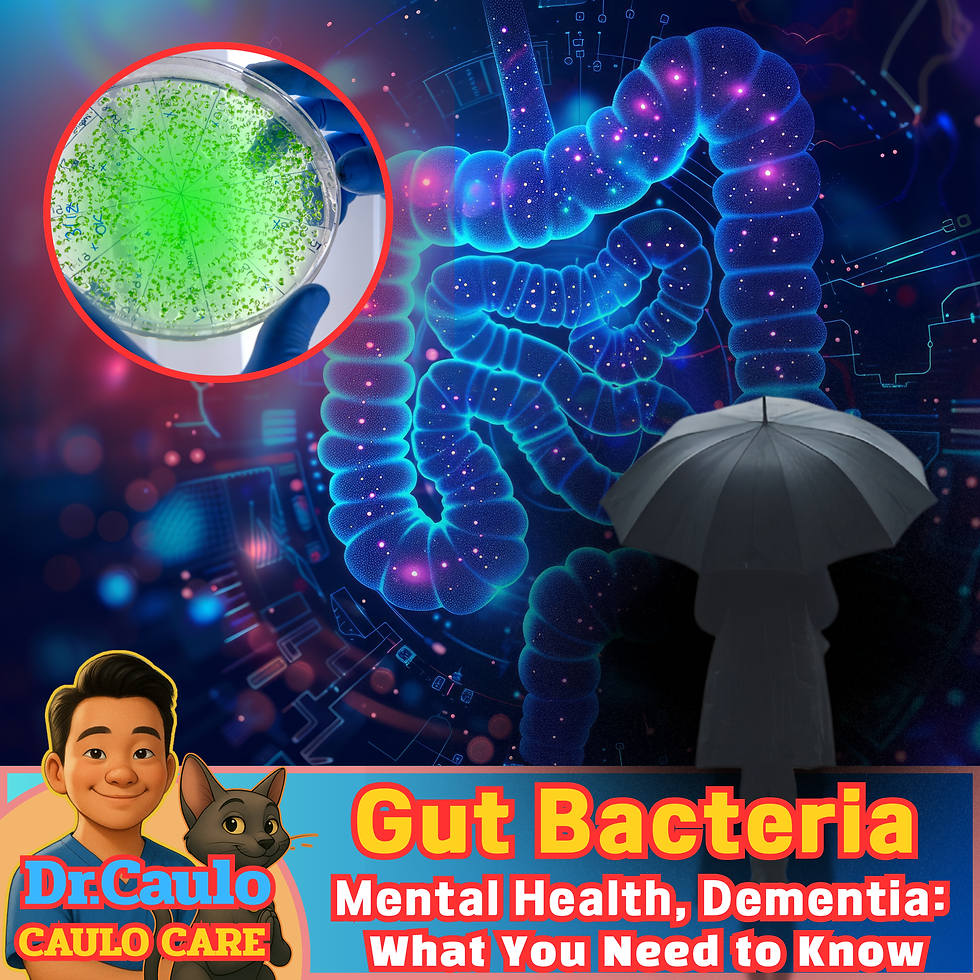Understanding the Dangers of Severe Diarrhea and Its Impact on Hydration and Health
- caulocare
- Apr 28, 2025
- 4 min read

Diarrhea often seems like a minor nuisance, but it can quickly transform into a serious health issue. When it is frequent or severe, the effects on hydration can become alarming. Dehydration, as a result, can have severe—and even fatal—consequences. It is vital to understand not only the rapid loss of fluids but also the potential life-threatening implications of dehydration related to diarrhea.
The Body's Balance: Why Hydration Matters
The human body operates as a finely tuned machine, where water plays a vital role in functions such as temperature regulation, joint lubrication, and nutrient transport. A staggering 60% of the human body is composed of water. Therefore, when diarrhea strikes, the rapid loss of fluids can disrupt this balance.
During an episode of diarrhea, a person can lose up to 1 liter of water or more within just a few hours. Losing 10% of the body weight in fluids, which would be about 7 to 8 pounds for a person weighing 150 pounds, can lead to critical health issues that require immediate attention.
How Diarrhea Leads to Dehydration
Diarrhea does not only cause the body to lose water; it also depletes essential electrolytes that our bodies need to function correctly. Let’s break down how this happens:
The Process of Fluid Loss
Rapid Loss of Water: Increased bowel movements can lead to an alarming loss of water, often in the range of 3 to 4 liters in severe cases.
Mineral Depletion: Along with fluids, vital minerals like sodium, potassium, and magnesium are lost. For instance, a decline in potassium can cause muscle cramps and an irregular heartbeat, making the situation even more dangerous.
Increased Risk of Dehydration: When the body loses more fluids than it can take in, severe dehydration can quickly set in, leading to a dangerous cycle of health issues.
Signs of Severe Dehydration
Recognizing the signs of severe dehydration is critical for timely intervention. Here are some key symptoms to watch for:
Thickened Blood: Dehydration concentrates the blood, increasing stress on the heart. A heart rate exceeding 100 beats per minute is often observed in dehydrated individuals.
Kidney Shutdown: Insufficient hydration makes it tough for the kidneys to produce urine. This can lead to an accumulation of toxins that far exceed safe limits in the bloodstream.
Cognitive Impairment: Dehydration can alter brain function, causing confusion, severe fatigue, and even seizures in extreme cases.
Shock: Untreated dehydration may lead to shock, where the body's vital organs fail to receive adequate blood flow, potentially resulting in death.
Early recognition of these symptoms is essential to prevent severe health consequences.
The Risks Involved with Severe Diarrhea
Severe diarrhea is much more than just physical discomfort. It brings a host of health risks that can escalate quickly:
Heart Strain
When fluids decrease, the blood becomes thicker, making it harder for the heart to pump effectively. This can lead to an increased heart rate and potentially heart failure if not addressed.
Kidney Failure
A lack of hydration puts tremendous stress on the kidneys, which may eventually fail. One study showed that acute kidney injury could occur in up to 20% of hospitalized patients suffering from severe diarrhea.
Neurological Effects
Dehydration impacts brain health and can lead to severe cognitive issues. Confusion and memory problems can arise, with extreme cases leading to seizures or loss of consciousness. Maintaining adequate hydration is essential for cognitive performance and safety.
Preventing Dehydration
Given the potential severity of dehydration, it is crucial to act proactively. Here are effective strategies to manage hydration during episodes of diarrhea:
Rehydration Strategies
Fluids First: Begin by drinking plenty of water, but opt for an oral rehydration solution (ORS) rich in electrolytes. For instance, drinking a solution that includes approximately 1.5 grams of sodium and 2.5 grams of glucose can significantly aid in the rehydration process.
Avoid Certain Beverages: Steer clear of caffeinated or alcoholic drinks as they can worsen dehydration. Stick to clear fluids until the situation stabilizes.
Monitor Symptoms: Pay close attention to how your body is reacting. If diarrhea persists for more than 24 to 48 hours, seek medical help immediately.
Nutritional Support
While rehydration is crucial, maintaining nutrition can also support recovery.
Broths and Soups: These provide both hydration and vital nutrients. For example, a chicken broth can deliver both sodium and hydration necessary for recovery.
Fruits and Vegetables: Incorporate potassium-rich foods such as bananas and avocados to restore electrolyte balance effectively.
When to Seek Medical Help
In certain situations, self-care may not suffice. Understanding when to seek medical assistance is vital:
Persistent Symptoms: If diarrhea continues longer than 48 hours or worsens, obtain medical evaluation.
Signs of Severe Dehydration: Symptoms like dizziness, extreme thirst, little or no urination, and confusion are critical signals that require immediate medical intervention.
Underlying Health Conditions: Individuals with chronic illnesses should contact their healthcare provider as soon as diarrhea starts.
Final Thoughts
The dangers of severe diarrhea extend far beyond temporary discomfort; dehydration can become life-threatening within hours. The body loses essential fluids and minerals rapidly, and failing to replenish them can have dire consequences.
Recognizing the signs and acting swiftly can make a significant difference in preventing serious health problems. Frequent diarrhea should never be ignored. By prioritizing hydration and knowing when to seek assistance, individuals can safeguard their health against the severe impacts of diarrhea and dehydration.
This information is only educational and should not be construed as medical advice.
Everything must be balanced, and the suggestions may not apply to you.
A specialist doctor should be consulted for any medical advice or diagnosis.
BOOK AN APPOINTMENT NOW!
Acupuncture near me at Forest Hill, NY
🔶🔷🔶🔷🔶🔷🔶🔷🔶🔷🔶🔷
Dr. Phumlarp Caulo LA,c, MAc. OM, DAHM
Doctor of Acupuncture/Chinese Medicine
Caulo Care Acupuncture
🔖 By appointment only
☎️+1 (929) 269-4549




Comments